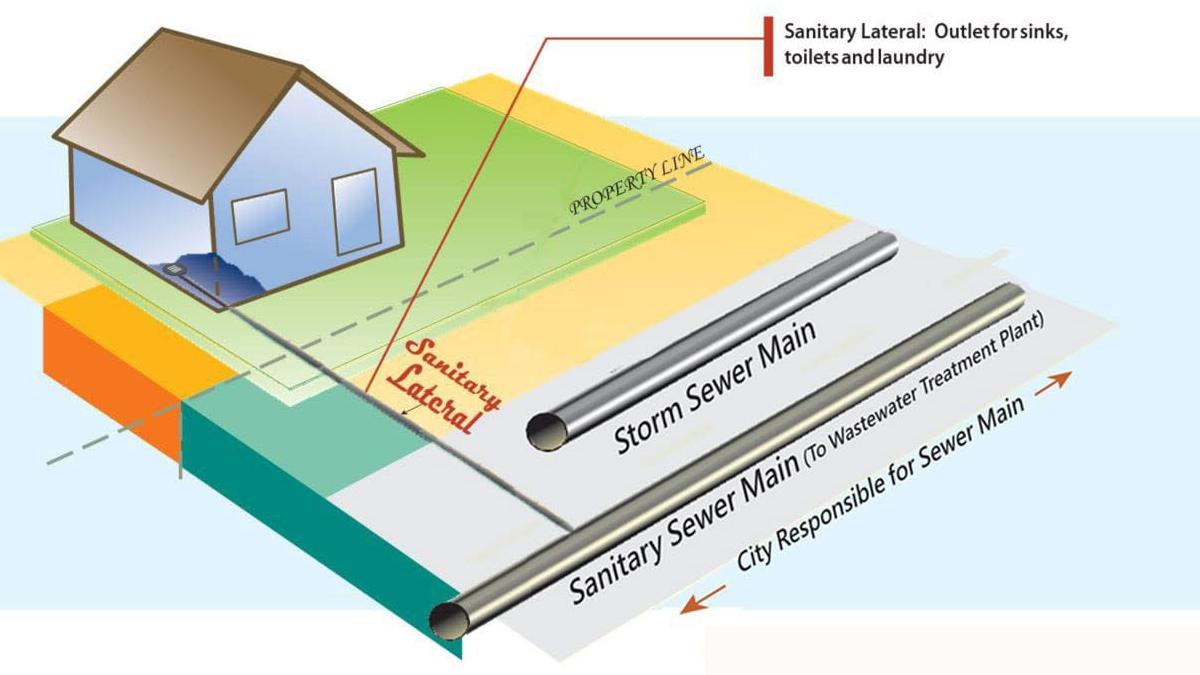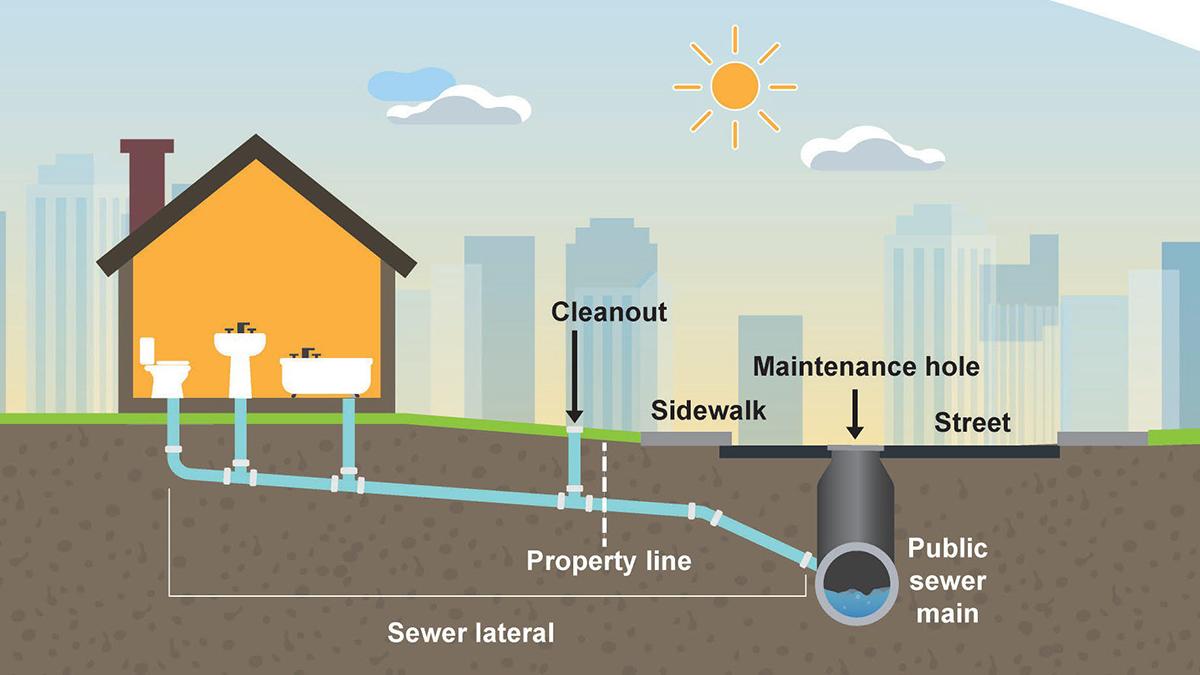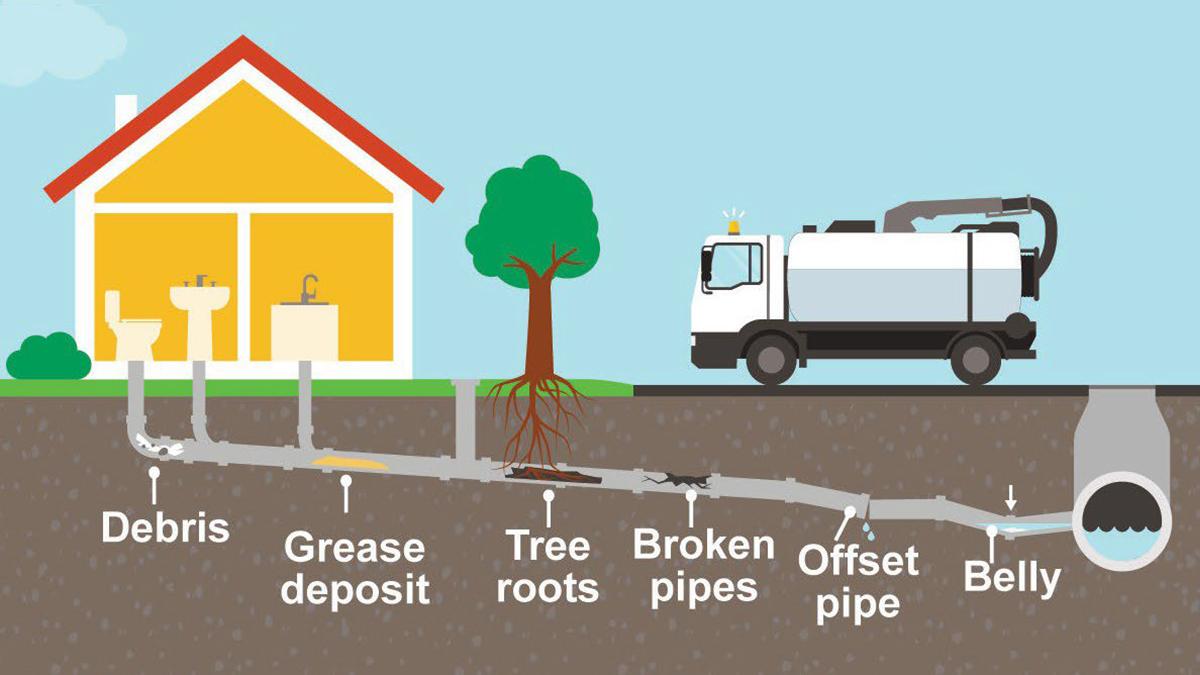There are two types of sewer systems: storm and sanitary. The municipal storm sewer system collects rainwater and surface water runoff from roads and parking lots. The municipal sanitary sewer system is a system of underground pipes that transport sanitary sewage from the plumbing of privately owned buildings to the Wastewater Treatment Facility. Flooding can occur if the sewer connection to a building becomes blocked, or when catch basins or culverts are blocked.
Sewer Use By-law
The City's Sewer Use By-law provides guidance to residents and businesses on proper wastewater disposal practices. It sets limits for certain substances that, if discharged to the sanity and storm sewer systems over the limits, could damage City infrastructure and/or end up in Lake Simcoe untreated.
Storm Sewer System
The municipal storm sewer system carries the rain and snow melt water that reach the City’s catch basins, which are typically found along the side of roadways or in parking lots. This water drains directly back into the local watercourse, Kempenfelt Bay, or Little Lake.
Water that enters a storm drain is NOT treated to remove pollutants. It is important not to dispose of any waste materials into any storm water collection point. Catch basins are never an option to dispose of hazardous materials such as paints, oils, grout wash water or drywall mud. Please help protect our drinking water sources.
Storm Sewer Devices
Did you know? The City conducts a larviciding program to control larval mosquitoes to prevent their development into vectors of West Nile Virus. Larvicide is placed into municipal-owned catch basins of storm drains within the boundaries of the city of Barrie. Learn more about the larvicide application.



Sanitary Sewer System
The municipal sanitary sewer system is a system of underground pipes that transport wastewater from the plumbing of privately owned buildings, including toilets, sinks, wash basins and industry process connections, to the Wastewater Treatment Facility (WwTF). Manholes are used at designated intervals in a sewer line as a means of access for inspection or cleaning. Learn about the annual Sanitary Sewer Lining Program.
The sewage is treated at the WwTF and clean treated water is discharged into Kempenfelt Bay. To ensure a properly functioning transportation and treatment system, certain materials should NOT be disposed into sinks or toilets.
When disposed of into sinks or toilets, these common items can cause blocked drains, equipment damage, injury to a WwTF employees, and/or poor sewage treatment:
- Disposable diapers
- Baby wipes or toys
- Sanitary napkins
- Combs or brushes
- Hair
- Any plastic materials
- Kitchen grease
- Oil, fuels & other hazardous materials
- Building foundation drainage (sump pump water)
- Newspapers, rags, cloths, cleaning wipes, paper towels
Not sure how to dispose of an item in Barrie? Visit barrie.ca/WasteItemLookup to find out.
Sanitary Lateral Backups
A sanitary lateral is an underground pipe outside of your home that carries wastewater from your sinks, toilets, laundry, showers, etc. to the City’s sanitary sewer mains. If not cared for properly it can lead to sewage coming back into the house.
Property owners are responsible for proper use of the sanitary lateral and for items that go down the drains. Property owners are responsible for the maintenance and cost to repair the pipe on both the private and City side, if misuse of the sanitary lateral is determined to be the cause for the blockage.
Businesses should follow best management practices and manufacturer’s recommendations for any pre-treatment devices installed on their sewer lines.



Prevent Flooding
Flooding can occur if the sewer connection to a building becomes blocked by tree roots, grease, objects and other debris. Flooding can also occur during spring and summer storms and also when catch basins or culverts are blocked. Basic preventative measures include:
- do not put grease or objects (such as diapers, wipes, paper towels, rags, dental floss) down your toilet or drains.
- consider installing a sump pump if required.
Sump pumps are installed in the basement of homes to collect water from the foundation of the house and pump it out onto the lawn to prevent basement flooding. - keep catch basins clear of leaves and debris. In the fall, sweep up leaves for bagging or composting to prevent excess debris from entering the sewer system.
- consider having your plumbing cleared of any debris, roots, etc.
If you have a back-up of water and/or sewage in your basement, please:
- Check the toilets and sinks and clear any blockages.
- If that doesn’t solve the problem, please call us at 705-726-4242.
- Avoid using your plumbing until the problem has resolved to minimize any damage.
- Make notes of everything that happens (i.e. where and when the water came in, anything you did to help alleviate the flooding). This will help City staff or your plumber determine the cause of the flooding.
It is important that any obstructions that can contribute to flooding be reported to the City of Barrie as soon as possible. Call 705-726-4242.
During spring weather conditions and heavy rainfall events, water levels in local creeks and watercourses can rise and be dangerous. Please call the City at 705-726-4242 (after-hours, please follow the prompts) to report any of the following:
- obstructions in creeks or watercourses
- flooded ditches
- blocked culverts
- flooded roadways
